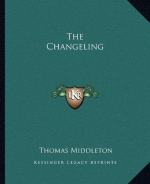|
This section contains 12,541 words (approx. 42 pages at 300 words per page) |

|
SOURCE: Simmons, J. L. “Diabolical Realism in Middleton and Rowley's The Changeling.” Renaissance Drama 11 (1980): 135-70.
In the following essay, Simmons examines sexual fantasy and demonology in The Changeling.
Middleton's paradoxical genius was affirmed by T. S. Eliot in 1927 in a way that modern criticism tends to vulgarize into simple contradiction. Middleton was, for Eliot, an “impersonal” artist with “no point of view,” “no message”; he was “merely a great recorder,” his work grounded by “a strain of realism underneath.”1 With those characteristics, however, and perhaps even because of them, he wrote in The Changeling a play of “profound and permanent moral value and horror”; here “Middleton is surpassed by one Elizabethan alone, and that is Shakespeare.” Eliot apparently saw no dichotomy: in The Changeling Middleton objectively exposed “fundamental passions of any time and any place”; he was not distracted from reality by the Elizabethan deduction that God's revenge...
|
This section contains 12,541 words (approx. 42 pages at 300 words per page) |

|


